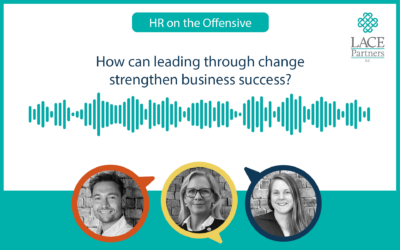Talent featured heavily in our ‘One Big Thing’ whitepaper and campaign we ran in late 2022 and in to Q1 2023 this year. We are speaking to organisations regularly about how to solve their talent problems, and one often overlooked solution sits within alumni relations and leveraging this rich network.
Today’s blog is written by our talent expert and Executive Director David Pacifico. It looks at why alumni relations are often de-prioritised, as well as what options there are for businesses looking at making the most of the talent pools already at their disposal.
The power of the connected world through alumni networks
In an ever-growing digital world and within their new organisations alumni can act as advocates or detractors of our products and services. They can also impact our employment brand and our ability to attract great talent in the market. In short, organisations need to start proactively engaging their alumni community to support business growth and talent agendas.
There are many market leading companies like HSBC, Microsoft and Linklaters who are committed to and have teams and systems in place to tap into their alumni networks. They recognise that there is increased revenue and brand advocacy to be gained through introductions via the alumni network, increased innovation through using their alumni community to test new products and services (that reduce ‘go-to-market’ time for initiatives), as well as the obvious opportunity to recruit talent back into the business (the ‘boomerang employee’ effect).
In the last couple of years, there has also been in the UK an increase in employees taking early retirement which can create a skills and knowledge gap in some organisations e.g. NHS healthcare. However, with recent UK Government tax benefits and family incentives introduced to encourage more people back into work, this can add further weight to the argument to invest in alumni relations.
Why aren’t more organisations leveraging their alumni communities?
Traditionally alumni communities established via schools, universities, and within the world of the military. From a corporate perspective, professional services, law firms and major tech firms also see the broad-based business benefits.
However, within other industry sectors from global organisations through to SME companies, the uptake has been mixed.
The reasons are varied but common constraints organisations face include:
- A lack of robust business case for investing in alumni relations
- Unclear sponsorship and ownership within organisations to drive it forward – should it be business, HR or talent acquisition led?
- A lack of funding for the technology, FTEs resources and virtual/in person events to support long term success
- Competing HR technologies investments means investment in an Alumni platform can be seen as a lower priority
- Determining the criteria for those former employees that should be invited to join the alumni community
- Scaling the alumni program across the business or into different countries.
What do you need to do to establish a successful alumni programme?
The value case for return on investment will of course vary based on how much resource a business is willing to put in. Alumni programmes can cost anything between £150,000 per annum (for resource, technology implementation, marketing budget, etc), through to north of £500,000 depending on the system and scale of your business and requirement.
However, the return on investment that could be garnered are clear, providing that you gather the right data and use it to evidence the return on investment that can be made. If you are a global organisation and can calculate the costs per annum spent on recruitment agency fees alone, how much would that come to in your business?
If you want to make any alumni programme a success, there are some key requirements that will need to be considered.
1. Secure buy in and long-term support from leadership
Executives and senior leaders within any organisation need to see the value in any alumni programme, support the efforts, and be involved in key Alumni activities and events. If it is something driven purely by the HR or Talent Acquisition function, then getting buy in across all aspects of the business becomes extremely difficult.
2. Long-term funding
An enterprise alumni programme is for life, not just the short term! It requires long term funding and commitment to sustain the ‘engagement and relationship’ with its alumni. If the program is set up and has limited resources (i.e. FTEs and budget) or not viewed as important by Executive members, it will yield limited benefits and most likely fail.
3. Go beyond the digital relationship
It is possible to establish alumni programmes through a digital only presence (e.g. via an alumni platform or via LinkedIn, Facebook etc.) but the best programs seek to engage alumni at face-to-face events like client or Alumni specific events. As referenced earlier, alumni need to see value in being part of their former employer’s alumni. If there is an absence of targeted events or face to face contact with alumni, it’s likely that business development opportunities derived from alumni members will be limited and that the best outcomes for the business will relate to talent acquisition initiatives.
4. Personalised content and connecting others are critical
To keep the alumni engaged, the alumni relations platform needs to be regularly updated with relevant, targeted content aimed at specific alumni groups by the organisation. Further, the best platforms enable alumni members to curate and post content like other social media platforms which make them self-sustaining.
In addition, helping alumni connect with each other is another valuable benefit to them and are likely to stay engaged with the programme and platform over the long term.
5. Creating an engaging and positive leaver experience
Establishing an alumni community is also a great strategy to help create a positive leaver experience. Employees will come and go in your organisation, but former employees can become either advocates or detractors based on how they are treated when they move on from your organisation. Further, some may ‘boomerang’ back to the company in the future, hence it’s a positive strategy to invite them to become part of an alumni community and keep connected with them.
How important is technology?
Alumni relations is best managed by a dedicated platform. There are many Corporate Alumni Platforms on the market (Peoplepath, Hivebrite, Enterprise Alumni, and AlumniEx to name a few). These provide rich functionality to help organisations connect with their alumni, created dedicated news feeds, post new career / referral opportunities, enable alumni members to connect directly with each other and offer a broad range of alumni benefits and events.
If budgets are constrained, some organisations build their own alumni platforms or leverage aspects of their corporate LinkedIn or Facebook pages to build an initial community.
The key is to ensure the platform integrates well with other key HR and Marketing systems and that there is active management of the community and content to help entice alumni members to engage with their community.
Where next?
If you are looking at how you can leverage an untapped talent pool, or you want a perspective on how your existing approach to alumni could be improved, reach out to us here.






